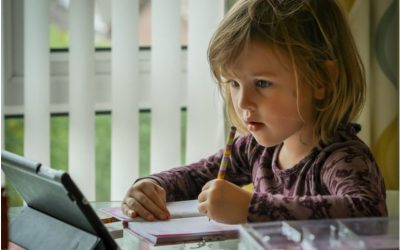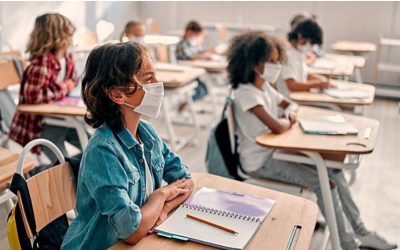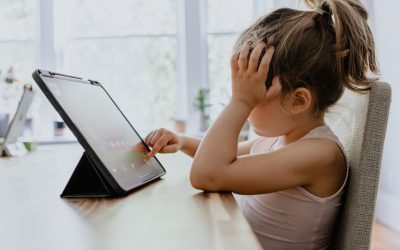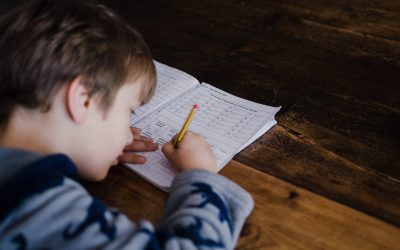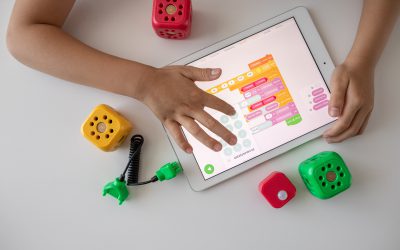COVID-News update April 6 – April 10
14 Apr 2020 | News
On Friday 10 April, we discussed the week with Astrid Ottenheym (director of the network for inclusive primary education in Noord-Kennemerland) and Mariska Westdijk (Director of Education & Identity of school board CSG De Waard). The conversation revealed observations about progression to secondary education, scenarios for reopening schools, the positive consequences of home-schooling, and how the current investments in online teaching can benefit educational outcomes in the future.
In the news in the Netherlands this week: children in vulnerable situations, how primary school children can choose their school for secondary education, final exams in secondary education, screen time, examples of online education, and the social-emotional development of pupils.
Prof. Dr. Melanie Ehren & Rukiye Turkeli
14-04-2020


Progression to secondary education
Now that the end of primary school test has been cancelled, pupils are tracked into secondary education on the basis of the past assessments and the teacher’s advice. Normally there would have been an opportunity for the teacher to change his/her advice on the basis of the test. With the absence of the end of primary school test there is a concern that parents will have their child assessed on other tests and use the score to argue for higher placement.
Scenarios for reopening of the schools after the May bank holiday
With the upcoming May bank holiday, school boards are discussing potential scenarios for school opening and the relevant preparations and communication to parents. The scenarios we discussed are as following:
1) full opening of all schools for all pupils;
2) partial opening (for example, opening up schools for a wider segment of pupils, according to the occupation of their parents: widening the definition of ‘crucial professions’)
3) opening of primary schools, but secondary schools remain closed
4) all schools remain closed for a longer period
The opening of schools is considered important as pupils are losing a sense of affiliation to the school. Given that there is still uncertainty over whether children spread the virus, ongoing epidemiological research first needs to clarify the risk. Other measures for social distancing when schools would reopen were also discussed such as:
– Kiss & Ride, where parents drop their children at the school gate but don’t come into the school
– Minimizing interactions of pupils and teachers
– Work in smaller groups throughout the day
Other questions that are currently being discussed concern various strategies to reduce learning gaps, such as grade repetition for a larger group of pupils, extension of the school day, extension of the school year (e.g. by 5 months), weekend and summer schools; temporary focus on core subjects, introduction of an additional formative test of all subjects to better understand actual learning gaps and inform adequate measures and interventions.
Positive consequences of home-schooling
Despite the current concerns about possible learning disabilities among pupils, the positive consequences of home-schooling also emerge. For example, students get more autonomy and learn (also by examples of brothers/sisters) to work independently and to make more choices in activities and structuring the day, there are students who relax and where there is room to learn through for example, opting for a different day structure that works better, and there is more room for appropriate education. Teachers are also redesigning their professionalism and are becoming more creative in thinking about the provision of education, for example by developing teaching videos and using learning materials from other schools.
Future benefits
The current investment in online education offers new ideas and ways for more differentiation in the structure of the school day and opportunities for personalized learning. The investment in materials (good cameras to record video, laptops for students, software for online learning), with further professional development of the ICT skills of teachers (online didactics), can lead to far-reaching innovation in education. For example, when all students can now access teaching from home, restructuring of the school day to accommodate different learning styles and needs and additional content for struggling, as well as gifted pupils.
Questions and concerns that were raised:
- A high work load of teachers
- Lack of clarity about teaching, learning, assessment and inspection after reopening of schools
- Decisions about the level of investment in ICT and teacher skills that need to be made; these can only be made when there is certainty over the length of time of school closure.
- Discussion about the quality of education, moving from ensuring access and availability to/of online teaching and home-schooling to ensuring the quality of the provision. Teachers explain how finding good video materials to incorporate in their instruction is taking a lot of time.
National news
The national news in the week of April 6 saw the following items:
Children in vulnerable situations
- Not all pupils and teachers have access to an internet connection or computer facilities. Commissioned by the PO council, VO council and the ministries of OCW and EZK, SIVON investigated how many students and teachers do not have an internet connection at home. On the basis of this information, telecom providers will search for the best solutions together with the parties involved, such as issuing hotspots or public Wi-Fi networks.
In order to provide all pupils and teachers with a laptop / tablet, municipalities, social authorities and the Ministry of Education, Culture and Science have provided laptops to pupils. In the municipality of Amsterdam, for example, 3250 laptops and 450 WiFi hotspots have been made available for vulnerable children. In addition, NPO Z@ppelin offers instruction on television for children without a laptop / tablet. - It has been agreed that students in VET colleges who have limited access to online learning that they can attend these colleges in small groups, adhering to guidelines for social distancing.
- The Ministry of Education, Culture and Science has indicated that school staff will have the May holiday as planned. Concerns have been raised over potential domestic violence when the structure of home teaching or access to school is closed during the holiday. Some school buildings will allow for emergency care for students at risk during the May holidays.
- Munical inspectors are visiting families where children have not accessed online teaching. This is the case for 7000 primary school pupils.
- In order to prevent learning gaps as much as possible, various initiatives are being developed, such as thuisschoolmaatje.nl, where volunteers can register to help students who have difficulties with home education by means of (video) calling.
Study choice
Normally, primary school students would choose their secondary school by visiting open days, or high school students would decide on which universities to go to. New ways of advertising schools are developed, such as virtual sessions or visits. A range of websites are being developed by university students to help their younger peers decide on a university course, such as kiesinquarantaine.nl, Question Hetdestudent.nl, or Studievisie.nl, or by offering advice through social media.
Final exam secondary education
A letter from parliament from the Ministry of Education, Culture and Science provides insight into the pass-fail scheme for candidates who take their final exams this school year. This letter shows that the pass-fail scheme will be maintained as much as possible, for example with regard to the core subjects rule and the maximum number of fail marks. School exams and resits will determine whether the students have passed or failed and the results will be announced on 4 June at the latest. Students who have failed to meet the pass mark can take a resit for a maximum of two subjects where this exam specifically measures deficiencies. These tests are developed by the school and cover subject matter that was tested in the school-based exams. On Thursday, June 4th , the Ministry of Education will organize a national celebration to mark the graduation in secondary education.
Screen time
There have been concerns about the amount of screen time for children and tips are shared on how to reduce time spent on a computer, TV, tablet or mobile phone. Find them here.
Teaching online
A joint effort of the national councils in primary and secondary education and VET, with the Ministry of Education, and saMBO-ICT sees the development of a website with information about organizing online classes, access to tests and teaching materials
Social-emotional development of learners
There are many examples on the Internet of actions that have a positive influence on the social-emotional development of the child and reduce the feeling of social isolation in children.
Some examples are teachers who send personal and informal cards to their students:

The Corona Diary, in which children can keep track of what they experience and feel every day.
Sources
https://www.vo-raad.nl/nieuws/laatste-nieuws-rondom-coronavirus-en-onderwijs
https://www.rijksoverheid.nl/actueel/nieuws/2020/03/20/extra-ondersteuning-voor-kwetsbare-leerlingen
https://www.nji.nl/nl/coronavirus/Ouders/Mediagebruik-bij-kinderen-tijdens-coronatijd
https://www.thuisschoolmaatje.nl
See also information for:
Most recent blogs:
How LEARN! supports primary and secondary schools in mapping social-emotional functioning and well-being for the school scan of the National Education Program
Jun 28, 2021
Extra support, catch-up programmes, learning delays, these have now become common terms in...
Conference ‘Increasing educational opportunities in the wake of Covid-19’
Jun 21, 2021
Covid-19 has an enormous impact on education. This has led to an increased interest in how recent...
Educational opportunities in the wake of COVID-19: webinars now available on Youtube
Jun 17, 2021
On the 9th of June LEARN! and Educationlab organized an online conference about...
Homeschooling during the COVID-19 pandemic: Parental experiences, risk and resilience
Apr 1, 2021
Lockdown measures and school closures due to the COVID-19 pandemic meant that families with...
Catch-up and support programmes in primary and secondary education
Mar 1, 2021
The Ministry of Education, Culture and Science (OCW) provides funding in three application rounds...
Home education with adaptive practice software: gains instead of losses?
Jan 26, 2021
As schools all over Europe remain shuttered for the second time this winter because of the Covid...

